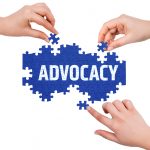 Question from the field: Can early intervention pay for audiology evaluations and hearing aids?
Question from the field: Can early intervention pay for audiology evaluations and hearing aids?
Approximately 50% of young children served by early intervention programs are eligible due to communication development concerns. Are early intervention programs responsible for providing audiology evaluations to children referred to Part C and have communication delay concerns?
Audiology Services – A 2003 letter to the Office of Special Education Programs said:
“Your question focuses on infants and toddlers referred to Part C with delays in speech and language whose parents have not had their children’s hearing tested, sometimes because the family and/or physician feel that such testing is not warranted. Further, you state your agency’s belief that “the very fact that they have a speech delay means that further audiological testing is warranted to rule out any late-onset hearing loss.”… Specifically, you ask if an audiology evaluation is a required Part C service and whether the Part C lead agency is a payor of last resort for such services.”
The answer is YES. Early intervention services include those designed to meet communication and physical development issues, including hearing loss. Audiology is identified as an example of early intervention services. Part C regulations require evaluation and assessment of the child’s functioning in a variety of domains and a statement of the present level of hearing status. Under Part C, an infant or toddler suspected of a communication delay whose hearing has not been tested and an audiology evaluation is needed must receive that evaluation as part of the overall early intervention evaluation process to be able to reflect the child’s present level of functioning. If audiology services are identified as a need on the IFSP, they must be provided at no cost by Part C if the child is not entitled to coverage for this service under any other Federal, State, local, or private source.
In many states the babies who fail newborn hearing screening and have been diagnosed with permanent hearing loss are referred to their local Part C early intervention program. Most of these infants require hearing aids and for some, use of DM Hearing Assistance Technology at home is appropriate. Are early intervention programs responsible for providing this assistive technology?
Hearing Devices – Another 2003 letter to the Office of Special Education Programs said:
Under Part C, appropriate early intervention services must be available to all eligible children and families. Assistive technology devices and assistive technology services are listed among the identified early intervention services. Assistive technology devices are required only if they relate to the developmental needs of infants and toddlers served by the program. Linking the provision of those devices to an educational benefit is not appropriate under a program that serves children from birth to age three. The “Secretary reiterates that the purpose of assistive technology devices is to meet the unique developmental needs of the child, as determined on an individualized basis through the IFSP development process.”
The answer is YES. Hearing devices fit under the IDEA description of assistive technology as “any item, piece of equipment, or product system, whether acquired commercially off the shelf, modified, or customized, that is used to increase, maintain, or improve functional capabilities of a child with a disability.” (20 U.S.C. 140(1)) Hearing devices are necessary to optimize the language development of children with hearing loss.
